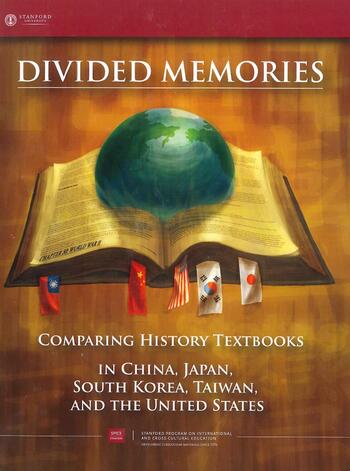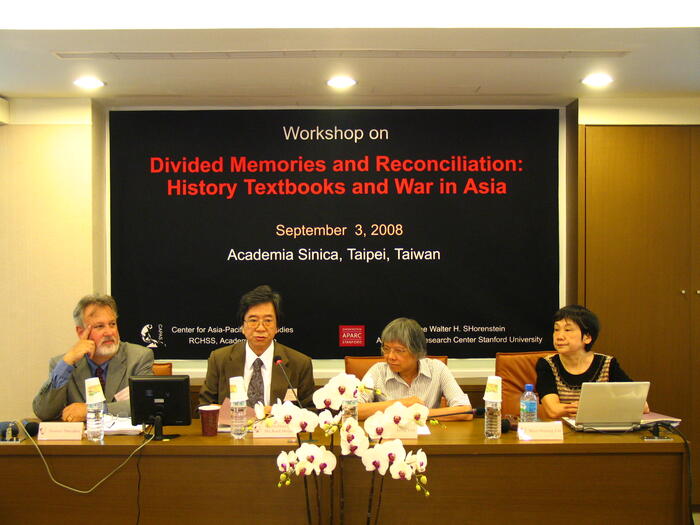Oksenberg lecturer calls for renewed cooperation between the US and China
A “radical uncertainty” now lies at the heart of the U.S.-China relationship, making it essential that the two countries find ways to rebuild the confidence they once shared or face a future with potentially catastrophic events, said Maxwell School Dean James Steinberg during a speech at Stanford’s Shorenstein Asia-Pacific Research Center (APARC) on Wednesday.
“There is an urgent need for both sides to step back beyond the day to day back and forth to try to steer a different course,” he said. “We need to deal concretely – and in very pragmatic ways – with taking steps to give each other confidence that our paths are not necessarily in conflict.”
Steinberg’s call to action came as senior leaders of China and the United States set to meet for a dialogue on economics and strategy in Beijing. His speech was part of the Oksenberg Lecture series, an annual dialogue on U.S. policy toward China and Asia, named in honor of the late Stanford professor and Freeman Spogli Institute senior fellow Michel Oksenberg.
Oksenberg was a role model who “consistently urged the United States to engage with Asia in a more considerate manner,” China Program Director Jean Oi said in her welcome remarks. A reknowned China scholar, he served on the National Security Council under President Jimmy Carter and was a driving force behind normalization of relations between China and the United States in the late 1970s.
A panel of experts from Shorenstein APARC including Michael Armacost, Thomas Fingar and Kathleen Stephens, all distinguished fellows at Shorenstein APARC, offered comments following the keynote speech. Steinberg worked with each of them in Washington at various points in his career that ranged from the State Department, where he served as deputy secretary of state in the Obama administration, to the Brookings Institution, where he served as vice president.
Consensus approach to engagement
Oksenberg advocated a vision of engaging China based on pursing the goal of a creating a stable, secure and effectively governed China, Steinberg recounted. That vision became known as the consensus approach wherein the two countries agreed to work together by building trust and letting their priorities be known to each other.
That consensus held steady, weathering stressful events such as the missile crisis in the Taiwan Straits in 1996 and the Tiananmen Square protests in 1989, Steinberg told the audience.
The mutual understanding that shaped the U.S.-China relationship remained relatively unscathed until the early twenty-first century. China pursued growth “without directly challenging the United States, our allies, or the post-World War II international order,” he said, but as 2010 came to a close, agreement began to wane as an “emerging security dilemma” took its place.
Part of the divergence in the U.S.-China relationship was caused by the 2008 global financial crisis, Steinberg argued. The crisis encouraged some in China to believe that the financial crisis foreshadowed an era of decline for the United States. Meanwhile, China began to increasingly assert sovereignty claims in the East and South China Seas, despite objections from many of its neighbors and from the United States.
Toward strategic reassurance
While uncertainty is an inherent part of major power relations, China and the United States now each hold concerns about the other that are broader and more extreme compared to three decades ago, when the consensus approach was first shaped.
Armacost, a former U.S. ambassador to Japan, later noted that some ambiguity is to be expected. “In dealing with foreign policy issues of any consequence, there is an irreducible element of conjecture,” he said. “One doesn’t know the intensions of other countries – especially big complex societies like China.”
However, the level of uncertainty held by the United States and China is problematic because they are so deeply embedded in each other’s success, Steinberg said. The path to reducing uncertainty could be first addressed through “humble acknowledgement” of the unknown. Recognizing that neither side has an exact understanding of the other, he said, creates space for both sides to broach concerns and foster “strategic reassurance.”
But strategic reassurance by itself is not enough, the former senior State Department official said, and must be coupled with hedging. Steinberg described the United States’ pursuit of multiple strands of engagement with China as “hope for the best, prepare for the worst,” but also cautioned that too much emphasis on hedging could undermine progress.
Rebuilding confidence in the U.S.-China relationship will not be immediate or simple and requires sustained engagement and cooperation with other countries. Stephens, a former U.S. ambassador to South Korea, underscored the necessity of dialogue. She said the United States and its allies in the region must “talk more frankly and more often with each other, as well as managing that with China.”
The academy and policy community
Steinberg said an important role exists for academics and policy analysts in rebuilding lost confidence between the United States and China. Scholarship can give policymakers the tools to untangle some of the uncertainties and “help us not get the answers, but at least get the questions right,” he said.
Fingar, a former director of the National Intelligence Council, agreed with Steinberg and urged those communities to “do a better job of analyzing, explaining and perhaps buttressing confidence that the engagement with hedging strategy is actually still working.”
Steinberg lauded the example set by Oksenberg in his ability to bridge the academic and government sectors and of encouraging students to consider those career paths. “Our challenge…is to train the next generation of scholars – just as Michel Oksenberg trained his – to be able to talk and operate in both worlds,” he said.
Related links:









 Gaurav Kataria is a Big Data leader at Google who is responsible for driving Production Adoption initiatives across various Google for Work product lines - Gmail, Drive, G+, Hangouts, Google Docs, Drive, Android and Chrome. His group employs sophisticated machine learning and data mining techniques to understand the usage patterns across different products, and based on that creates programs to improve user engagement.
Gaurav Kataria is a Big Data leader at Google who is responsible for driving Production Adoption initiatives across various Google for Work product lines - Gmail, Drive, G+, Hangouts, Google Docs, Drive, Android and Chrome. His group employs sophisticated machine learning and data mining techniques to understand the usage patterns across different products, and based on that creates programs to improve user engagement.
